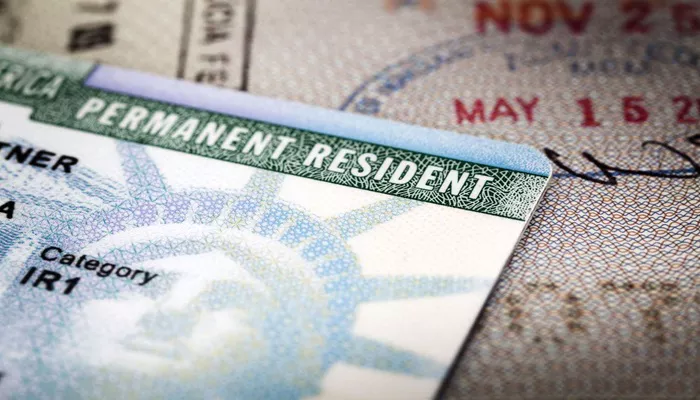Obtaining a green card, or lawful permanent residence, in the United States is a significant milestone for many individuals seeking to live and work in the country. However, not everyone is eligible for this status. Various factors can disqualify someone from receiving a green card, ranging from criminal convictions to health issues. This article will detail the various reasons that can lead to disqualification, helping potential applicants understand the complexities of the process and the importance of meeting all requirements.
Eligibility Criteria for a Green Card
Before delving into disqualifications, it’s crucial to understand the basic eligibility criteria for a green card. Applicants generally need to meet the following requirements:
Eligibility Categories: There are several pathways to a green card, including family-based, employment-based, and humanitarian programs. Each category has specific requirements.
Sponsorship: Most applicants need a sponsor, such as a family member or employer, who will vouch for them and meet certain conditions.
Background Checks: Applicants must undergo background checks, including criminal and security screenings.
Medical Examination: A medical examination is required to ensure the applicant does not have any serious health issues that could pose a public health risk.
Criminal Convictions
Serious Criminal Offenses
One of the primary reasons an applicant might be disqualified from obtaining a green card is a serious criminal offense. This includes:
Felonies: Convictions for serious felonies, such as murder, sexual assault, and drug trafficking, can lead to automatic disqualification.
Aggravated Felonies: Under U.S. immigration law, aggravated felonies are considered particularly severe and can result in a permanent bar from obtaining a green card. These offenses include drug trafficking, violent crimes, and certain types of theft.
Criminal History and Moral Turpitude
Crimes of Moral Turpitude: Crimes involving moral turpitude, which are offenses that go against accepted standards of morality, such as theft, fraud, and certain violent crimes, can also disqualify an applicant.
Multiple Convictions: Multiple criminal convictions, even if they are not considered aggravated felonies, can impact an applicant’s chances of obtaining a green card.
Immigration Violations
Previous Immigration Violations
Overstaying a Visa: Individuals who have previously overstayed their visa or violated the terms of their stay in the U.S. may face difficulties when applying for a green card.
Unauthorized Employment: Working in the U.S. without authorization can also be a disqualifying factor.
Fraud and Misrepresentation
False Information: Providing false information or documents during the green card application process is considered fraud and can lead to disqualification.
Misrepresentation: Any form of misrepresentation, whether intentional or not, can impact an applicant’s eligibility.
Health-Related Issues
Communicable Diseases
Contagious Diseases: Applicants must undergo a medical examination, and those with certain communicable diseases that pose a public health risk may be disqualified.
Failure to Vaccinate: Failure to provide proof of vaccination against certain diseases may also be a disqualifying factor.
Substance Abuse
Drug Addiction: Individuals with a history of drug addiction or substance abuse issues may be disqualified, particularly if they are unable to provide evidence of rehabilitation.
Security Concerns
Terrorism and National Security
Terrorist Activities: Participation in or support for terrorist activities can lead to disqualification from obtaining a green card.
Security Risks: Applicants deemed a threat to national security due to their affiliations or activities may also be disqualified.
Espionage and Sabotage
Espionage: Any involvement in espionage or sabotage against the U.S. can disqualify an applicant.
Subversive Activities: Participation in activities intended to overthrow the U.S. government can also result in disqualification.
Public Charge Rule
Financial Inadmissibility
Public Charge: The public charge rule assesses whether an applicant is likely to become dependent on government assistance. If an applicant is deemed likely to rely on public benefits, this can be a disqualifying factor.
Financial Stability: Applicants must demonstrate financial stability and have adequate financial support from a sponsor to avoid being classified as a public charge.
Previous Immigration Petitions
Denials and Appeals
Previous Denials: Past denials of immigration petitions or green card applications can affect future attempts. It is important to address the reasons for past denials and ensure they are not repeated.
Ongoing Appeals: If an applicant has ongoing appeals or unresolved issues from previous immigration cases, this can impact their current application.
see also: How Long It Takes to Replace a Lost Green Card?
Failure to Meet Application Requirements
Incomplete Documentation
Missing Documents: Failing to provide required documentation or submitting incomplete forms can result in disqualification.
Incorrect Information: Providing incorrect or inconsistent information in the application can lead to delays or denials.
Failure to Attend Interviews
Missed Interviews: Failing to attend scheduled interviews or appointments related to the green card application process can lead to disqualification.
Overcoming Disqualifications
Legal Remedies and Waivers
Waivers: In some cases, individuals who are disqualified may be eligible for waivers. For example, waivers for certain criminal convictions or immigration violations might be available.
Legal Representation: Seeking legal representation can help navigate complex issues and address disqualifications effectively.
Reapplication and Appeal
Reapplication: Applicants who have been disqualified may have the option to reapply if the disqualifying factors have been addressed or resolved.
Appeals: In certain situations, appealing a decision can provide an opportunity to present additional evidence or arguments in support of the application.
Conclusion
Obtaining a green card is a complex process with various eligibility requirements and potential disqualifications. Understanding the factors that can lead to disqualification is crucial for anyone considering applying for permanent residency in the U.S. From criminal convictions to health issues and immigration violations, many aspects can impact an applicant’s eligibility. Seeking legal advice and ensuring compliance with all requirements can improve the chances of a successful application.
For individuals facing disqualification, exploring available waivers, legal remedies, and appeals can offer pathways to overcoming challenges and achieving the goal of lawful permanent residence.


